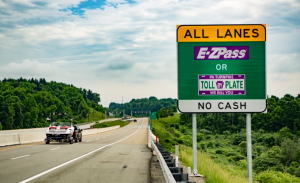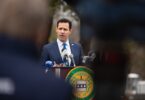Drivers on the 552-mile Pennsylvania Turnpike system will pay more starting Sunday morning.
The Pennsylvania Turnpike Commission voted last year to raise tolls for 2019. The six percent increase will impact cash, E-ZPass and Turnpike Toll By Plate users.
The most-common toll for a passenger vehicle will increase a dime for E-ZPass customers from $1.30 to $1.40 and 20 cents for cash customers from $2.10 to $2.30. Passenger vehicles will be charged $55 cash and E-ZPass users will pay $39.25 to travel from Bensalem to the Ohio border. The cost for larger vehicles will be even higher.
The cashless tolling price that hits drivers crossing westbound from the Delaware River Bridge in Bristol Township will not increase this year and remains $5 for passenger vehicles.
The new rate kicks in at 12:01 a.m. Sunday.
The Pennsylvania Turnpike Commission, which was more than $10 billion in debt as of 2016, voted to increase toll rates to cover its cost and improvement projects while also sending its mandated $450 million annual payment to PennDOT, a side effect of the state’s Act 44 of 2007 and massive Act 89 of 2013 transportation plans.
“This year about 84 percent of our $552 million capital budget is focused on renewing, rebuilding and widening our highway which carried more than 200 million vehicles last year,” said Pennsylvania Turnpike Commission CEO Mark Compton.
Compton added in a statement that the they “owe it to customers, who pay a premium to travel, to invest in our road and make it safer, smoother and wider.”
Capital funding will go toward repairs, rebuilding, and widening.
The Turnpike’s lane widening project has been criticized in consumer advocacy group PennPIRG’s 2018 “Highway Boondoggles” report.
“The money we spend today decides how we get around tomorrow,” said Matt Casale, PennPIRG transportation program director. “We need to start solving our transportation problems, from potholes to pollution, and not waste money on the type of highway projects that should be in our rearview mirror.”
“From 2008 to 2015, state highway debt more than doubled to $217 billion,” said Gideon Weissman, an analyst Frontier Group and report co-author. “We keep building new highways we don’t need, and that hurts our ability to move toward a smart 21st century transportation system that works for all of us.”
Advertisements
Gov. Tom Wolf, a Democrat, said on a Pittsburgh radio broadcast in summer that the increasing toll prices and stated their was support from both sides to look at the problem.
“It was an effort to make up for a problem that existed right from the start of the turnpike,” Wolf said. “The turnpike tolls were supposed to be temporary. The idea was that they would go … away, and it never did, obviously. The problem was that the money raised by the tolls never went into into the [state’s] general fund. … Some administration, years ago, decided maybe what we ought to do is try to figure out a way to get some of that money … for [other] highways in Pennsylvania, not just the turnpike, and that was what this Act 44 did.”
Pennsylvania Auditor General Eugene DePasquale has raised concerns about rising cost to travel on the Turnpike in recent years.
“If tolls continue to rise, middle-class families are going to be forced off the roadway,” he tweeted recently.
Teams from the Pennsylvania Auditor General’s Office are in the process of looking at PennDOT and the Pennsylvania Turnpike Commission’s finances.









